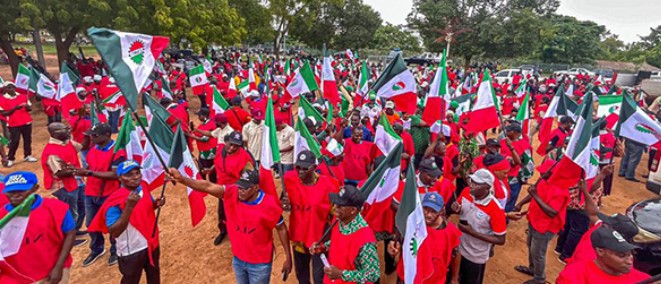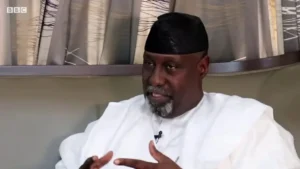The Nigeria Labour Congress (NLC) is gearing up for a protest against a 50% hike in telecom tariffs. The tariff increase, announced by the Nigerian Communications Commission (NCC), has sparked outrage, leading the NLC to announce plans to shut down telecom services across the country on March 1, 2025.
This move is in response to what the NLC calls a breach of public trust by telecom companies.
The NLC also urged Nigerians to boycott services from telecom providers like MTN, Airtel, and Glo between 11 a.m. and 2 p.m. each day throughout February.
They argue that the tariff hike was implemented before a review panel could make its final decision and accuse the government of failing to protect the public from corporate exploitation.
However, the Nigeria Security and Civil Defence Corps (NSCDC) has stepped in, warning that any protest action could harm national security and public safety.
The NSCDC, responsible for protecting critical national infrastructure, has deployed officers to telecom facilities across the country to prevent disruption and vandalism. They are concerned that the protest may be hijacked by criminals.
The NSCDC spokesperson, Babawale Afolabi, emphasized that the agency would take strict action to protect telecom infrastructure. He also stressed that any attempt to sabotage telecom services could expose the country to criminal activities and undermine national security.
Despite these warnings, the NLC insists it will move forward with its protest. Funmi Sessi, the Lagos State NLC Chairperson, dismissed the threats from the NSCDC, stating that the workers would not be intimidated.
The union believes the fight is about protecting citizens from unfair corporate practices, and they are determined to proceed with their plans.
In response to the protest, the Private Telecommunications and Communications Senior Staff Association of Nigeria (PTECSSAN) and the Association of Telecommunications Companies of Nigeria (ATCON) have spoken out, urging the NLC to reconsider.
They argue that the tariff increase is necessary to keep the telecom industry afloat amidst rising operational costs, including higher fuel prices.
While both sides remain firm in their positions, the dispute highlights the tension between labor rights, consumer protection, and the stability of the telecommunications industry in Nigeria.







